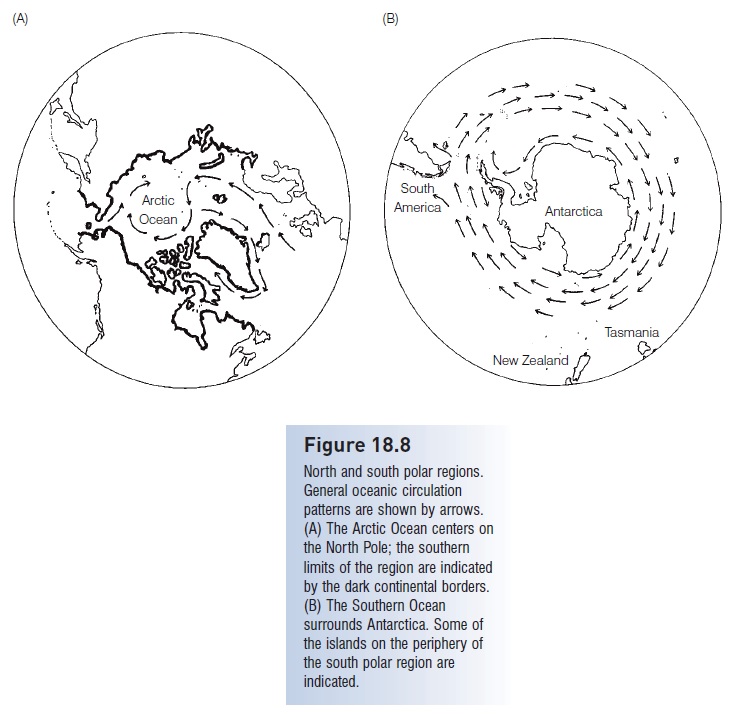Chapter: The Diversity of Fishes: Biology, Evolution, and Ecology: Special habitats and special adaptations
Polar regions - Diversity of Fishes
Polar regions
The far north (Arctic) and south (Antarctic) polar regions are roughly the areas above 60° latitude. They have much in common, primarily related to cold water temperatures and short growing seasons, but they differ geologically and environmentally and support very different biotas, including fishes. The Arctic is a frozen oceanic region surrounded almost entirely by land, whereas the Antarctic is a frozen continent surrounded by ocean (Fig. 18.8). Freshwater fishes are lacking from the Antarctic because most water bodies have permanent ice cover and many freeze to the bottom during the winter. High Arctic lakes and rivers have a limited fish fauna; 55 species occur in the Canadian Arctic, but most of these are primarily temperate species at the northern edge of their range (Scott & Crossman 1973). Freshwater fishes at high latitudes show interesting behavioral adjustments to the strong effects that seasonality has on light levels, day length, and growing season. Polar oceans are in a liquid state below the first few meters

Figure 18.8
North and south polar regions. General oceanic circulation patterns are shown by arrows. (A) The Arctic Ocean centers on the North Pole; the southern limits of the region are indicated by the dark continental borders. (B) The Southern Ocean surrounds Antarctica. Some of the islands on the periphery of the south polar region are indicated.
Related Topics